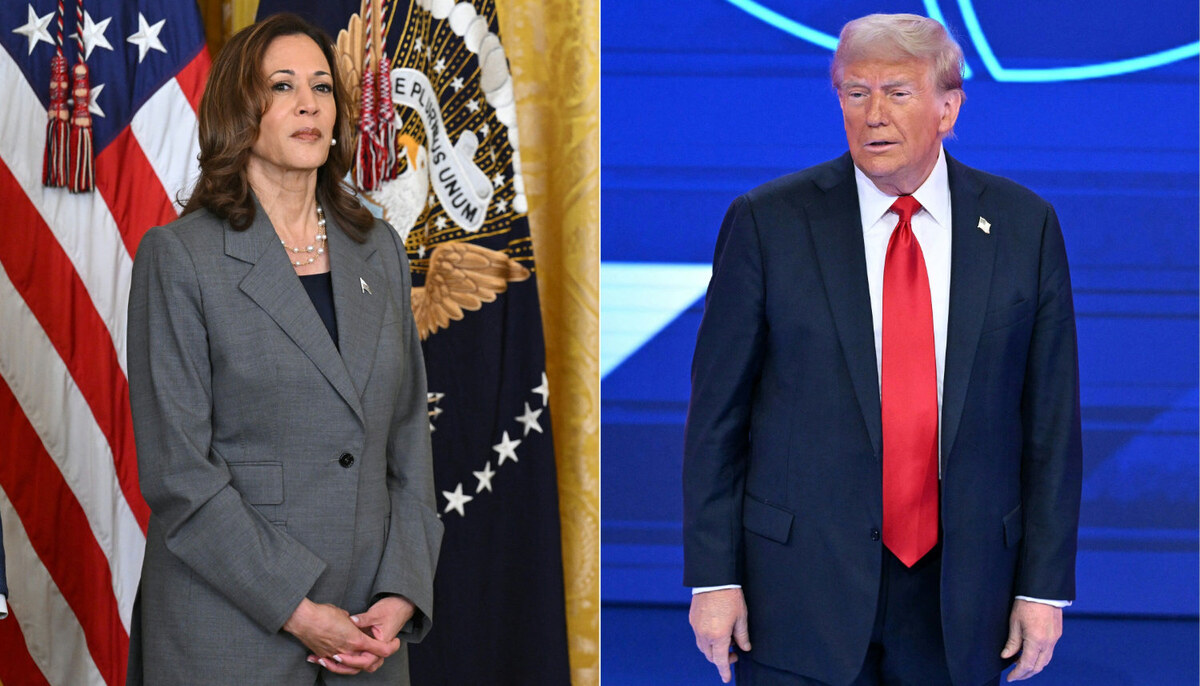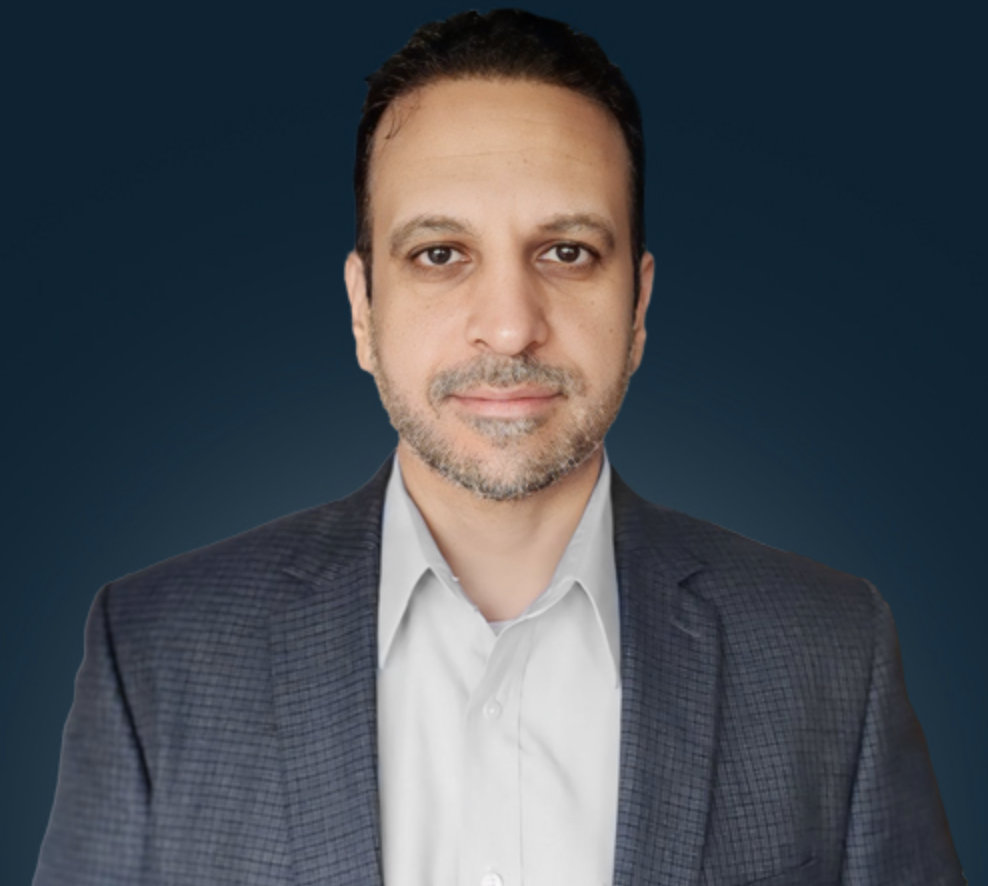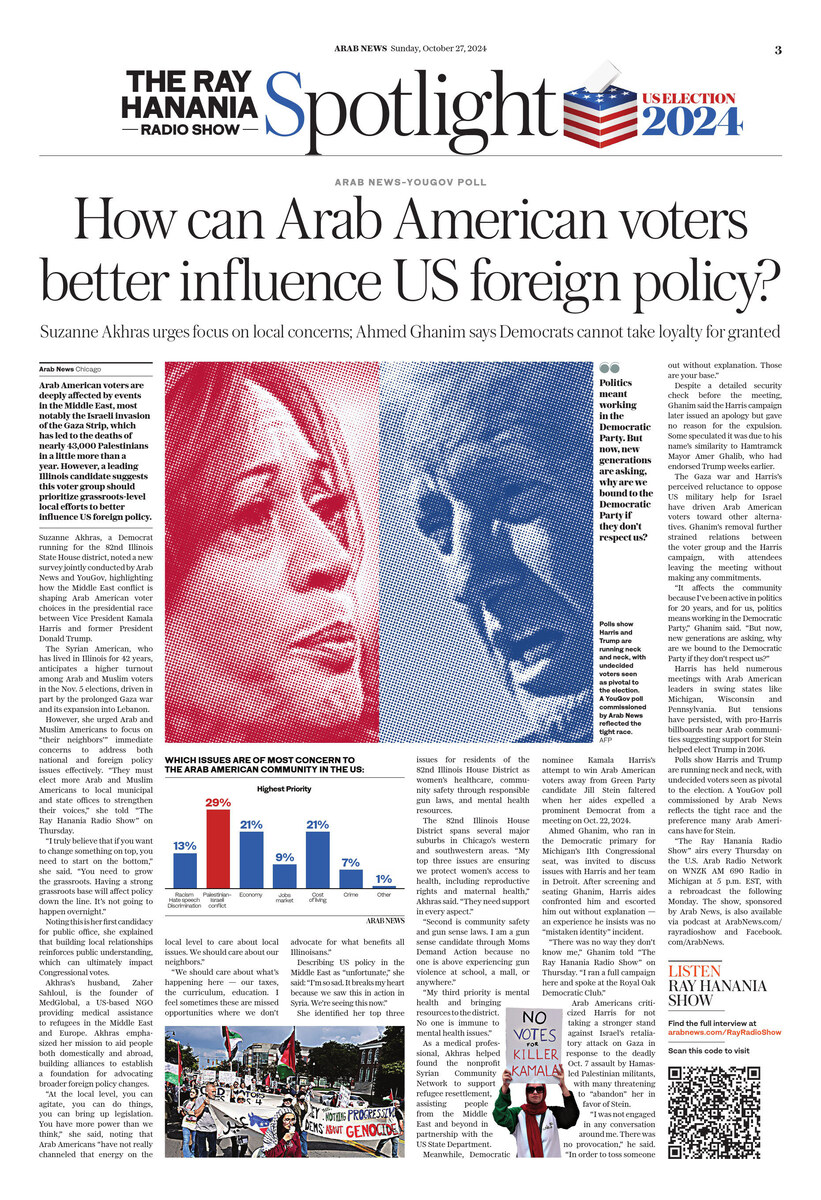CHICAGO: Arab American voters are deeply affected by events in the Middle East, most notably the Israeli invasion of the Gaza Strip, which has led to the deaths of nearly 43,000 Palestinians in a little more than a year. However, a leading Illinois candidate suggests this voter group should prioritize local efforts at the grassroots to better influence US foreign policy.
Suzanne Akhras, a Democrat running for the 82nd Illinois State House district, noted a new survey jointly conducted by Arab News and YouGov, highlighting how the Middle East conflict is shaping Arab American voter choices in the presidential race between Vice President Kamala Harris and former President Donald Trump.

US Vice President Kamala Harris, the Democratic presidential candidate, and former US President and Republican presidential candidate Donald Trump. (AFP)
The Syrian American, who has lived in Illinois for 42 years, anticipates a higher turnout among Arab and Muslim voters in the Nov. 5 elections, driven in part by the prolonged Gaza war and its expansion into Lebanon.
However, she urged Arab and Muslim Americans to focus on “their neighbors’” immediate concerns to address both national and foreign policy issues effectively. “They must elect more Arab and Muslim Americans to local municipal and state offices to strengthen their voices,” she said on “The Ray Hanania Radio Show” on Thursday.
“I truly believe that if you want to change something on top, you need to start on the bottom,” she said. “You need to grow the grassroots. Having a strong grassroots base will affect policy down the line. It's not going to happen overnight. It’s going to take time.”

Noting this is her first candidacy for public office, she explained that building local relationships reinforces public understanding, which can ultimately impact Congressional votes. “Just being present in different spaces at the local level, I think, is really important,” she said. “Having those one-on-one conversations, people see your point of view when you humanize it.”
Akhras’s husband, Dr. Zaher Sahloul, is the founder of MedGlobal, a US-based NGO providing medical assistance to refugees in the Middle East and Europe. Akhras emphasized her mission to aid people both domestically and abroad, building alliances to establish a foundation for advocating broader foreign policy changes.
“At the local level, you can agitate, you can do things, you can bring up legislation. You have more power than we think,” she said, noting that Arab Americans “have not really channeled that energy on the local level to care about local issues. We should care about our neighbors.”
“We should care about what’s happening here — our taxes, the curriculum, education. I feel sometimes these are missed opportunities where we don’t advocate for what benefits all Illinoisans.”

Dr. Suzanne Akhras, a Syrian American, is a Democrat running for the 82nd Illinois State House district. (Supplied)
Describing US policy in the Middle East as “unfortunate,” she said: “I’m so sad. It breaks my heart because we saw this in action in Syria. We’re seeing this now.”
She identified her top three issues for residents of the 82nd Illinois House District as women’s healthcare, community safety through responsible gun laws, and mental health resources.
The 82nd Illinois House District spans several major suburbs in Chicago’s western and southwestern areas, home to a significant Arab and Muslim population. “My top three issues are ensuring we protect women’s access to health, including reproductive rights and maternal health,” Akhras said. “They need support in every aspect.”
“Second is community safety and gun sense laws. I am a gun sense candidate through Moms Demand Action because no one is above experiencing gun violence at school, a mall, or anywhere.”
She added: “My third priority is mental health and bringing resources to the district. No one is immune to mental health issues.”
As a medical professional, Akhras helped found the nonprofit Syrian Community Network to support refugee resettlement, assisting people from the Middle East and beyond in partnership with the US State Department.
Meanwhile, Democratic nominee Kamala Harris’s attempt to win Arab American voters away from Green Party candidate Jill Stein faltered when her aides expelled a prominent Democrat from a meeting on Oct. 22, 2024.
Ahmed Ghanim, who ran in the Democratic primary for Michigan’s 11th Congressional seat, was invited to discuss issues with Harris and her team in Detroit. After screening and seating Ghanim, Harris aides confronted him and escorted him out without explanation — an experience he insists was no “mistaken identity” incident.
“There was no way they don’t know me,” Ghanim told “The Ray Hanania Radio Show” on Thursday. “I ran a full campaign here and spoke at the Royal Oak Democratic Club.”

Arab American Ahmed Ghanim ran in the Democratic primary for Michigan’s 11th Congressional seat. (Supplied)
Arab Americans criticized Harris for not taking a stronger stand against Israel’s retaliatory attack on Gaza in response to the deadly Oct. 7 assault by Hamas-led Palestinian militants, with many threatening to “abandon” her in favor of Stein.
“I was not engaged in any conversation around me. There was no provocation,” he said. “In order to toss someone out without explanation. Those are your base.”
Despite a detailed security check before the meeting, Ghanim said the Harris campaign later issued an apology but gave no reason for the expulsion. Some speculated it was due to his name’s similarity to Hamtramck Mayor Amer Ghalib, who had endorsed Trump weeks earlier.
The Gaza war and Harris’s perceived reluctance to oppose US military help for Israel have driven Arab American voters toward other alternatives. Ghanim’s removal further strained relations between the voter group and the Harris campaign, with attendees leaving the meeting without making any commitments.
“It affects the community because I’ve been active in politics for 20 years, and for us, politics means working in the Democratic Party,” Ghanim said. “But now, new generations are asking, why are we bound to the Democratic Party if they don’t respect us?”
Harris has held numerous meetings with Arab American leaders in swing states like Michigan, Wisconsin and Pennsylvania. But tensions have persisted, with pro-Harris billboards near Arab communities suggesting support for Stein helped elect Trump in 2016.
Polls show Harris and Trump are running neck and neck, with undecided voters seen as pivotal to the election. A YouGov poll commissioned by Arab News reflects the tight race and the preference many Arab Americans have for Stein.
“The Ray Hanania Radio Show” airs every Thursday on the U.S. Arab Radio Network on WNZK AM 690 Radio in Michigan at 5 p.m. EST, with a rebroadcast the following Monday. The show, sponsored by Arab News, is also available via podcast at ArabNews.com/rayradioshow and Facebook.com/ArabNews.





























